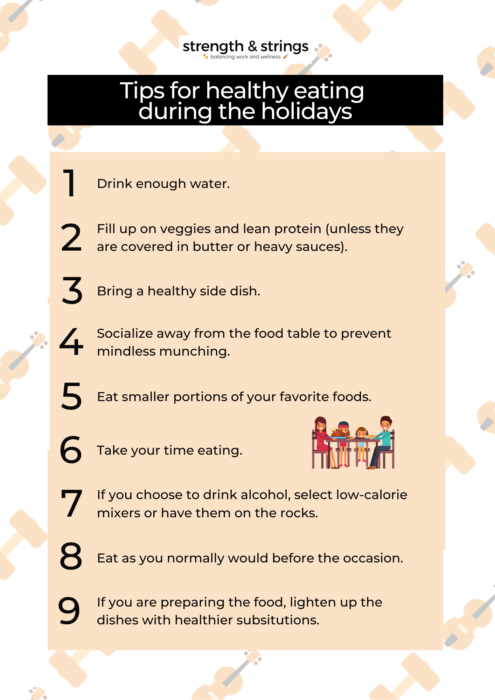
It is important to eat a healthy diet that includes enough vitamin C, antioxidants and fiber. Whole grains are rich sources of many B vitamins. These minerals have been proven to be beneficial in lowering cholesterol, protecting against heart disease, and diabetes. Yogurt can be a good source for calcium and protein. It also contains live cultures as well as probiotics which protect the body form harmful bacteria. Yogurt is great for boosting vitamin intake.
Walnuts are an excellent food for health due to their high level of omega-3 oil. They are good for your heart health and can help you recover from exercise. Peanuts are another excellent choice. A recent study in the US showed that eating 90 grams of peanuts per day reduced blood fat by up to 25% without increasing weight. Nuts can also be added to cereals and salads as snacks. Avoid eating unsalted nuts because they may encourage you to overeat.

Bananas make a great choice for health. Bananas are easy to find and can easily be found anywhere. They are also inexpensive and contain almost all of the vitamins you need. Bananas are a great addition to any meal. You can add a slice to your morning shake. Bananas can be paired with almost any food. This is the best option of both worlds. These aren't the only healthy foods. Here are some of the top.
Broccoli and other vegetables are rich in vitamin A and folate. It is no surprise that this food is often included on "superfoods" lists. It contains a special antioxidant called "superfood" that has been found to reduce cancer risk and activate the body’s detoxification enzymes. Broccoli is an excellent food for health and also a great source to energy as well as a source of fiber.
Yogurt is one the best foods for your health. Yogurt is made of milk that has been fermented and infused with live bacteria. Yogurt is not only rich in yogurt but also healthy fats. Extra-virgin oil, which contains monounsaturated fats that are good for your heart health, is one of the best vegetable oils. Coconut oil, however, is a healthy alternative that contains saturated fat.

Vegetables can be a great source of dietary and vitamin fiber. For instance, legumes are rich in amino acids which make it easier to feel fuller longer. They can also be used to replace meat. Green vegetables are considered the best food for health. A person should eat five to seven portions of them per week. Healthy eating should include many different types of vegetables and fruits. Fruits, vegetables, legumes, and legumes are the best foods for your health.
FAQ
What is the best diet for me?
The best diet for you depends on several factors, like your age, gender, weight, health conditions, and lifestyle habits. You should also consider how much energy your exercise consumes, whether you like low-calorie or high-calorie foods, and what you enjoy in terms of eating fruits and veggies.
Intermittent fasting is a good option if you're trying to lose weight. Intermittent fasting allows you to consume only certain meals per day, instead of eating three large meals. This may be a better option than traditional diets with daily calorie counts.
Intermittent fasting is believed to increase insulin sensitivity. It may also reduce inflammation. This may lead to a decrease in diabetes risk and blood sugar levels. Other research suggests that intermittent fasting may promote fat loss and improve overall body composition.
What is the difference of a virus from a bacteria?
A virus is an organism microscopic that can't reproduce outside its host cells. A bacterium can be described as a single-celled organism which reproduces by splitting in two. Viruses are very small (about 20 nanometers) while bacteria are larger (up to 1 micron).
Viruses can be spread by contact with bodily fluids containing infected substances, such as saliva, urine and semen. Bacteria are usually spread through direct contact with contaminated objects or surfaces.
Viruses can get into our bodies through cuts and scrapes on the skin, bites, and other injuries. They can also penetrate the skin through the eyes, nose or mouth.
Bacteria can enter the body through wounds. They may also be introduced into our bodies through food and water as well as soil, dirt, dust, and animals.
Both bacteria and viruses can cause illness. But viruses do not have the ability to multiply within their hosts. They only cause disease when they infect living tissue.
Bacteria may spread to other people and cause sickness. They can even invade other parts of the body. To kill them, we must use antibiotics.
How do I find out what's best for me?
Your body is your best friend. Your body will tell you how much exercise, nutrition, and sleep you need. It's important to pay attention to your body so you don't overdo things. Listen to your body and make sure you're doing everything you can to stay healthy.
How can I get enough vitamins?
Most of your daily vitamin requirements can be met by diet alone. Supplements are an option if you are low in any vitamin. A multivitamin can contain all the vitamins that you need. Or you can buy individual vitamins from your local drugstore.
Talk to your doctor if there are any concerns about getting enough nutrients. Dark green leafy vegetables like spinach, broccoli and kale, as well as turnip greens and mustard greens such as turnip and mustard greens and bok choy, are rich in vitamins K & E.
Ask your doctor to help you determine the right amount of vitamin. Based on your medical history and your current health, your doctor can recommend the correct dosage.
Statistics
- Extra virgin olive oil may benefit heart health, as people who consume it have a lower risk for dying from heart attacks and strokes according to some evidence (57Trusted Source (healthline.com)
- In both adults and children, the intake of free sugars should be reduced to less than 10% of total energy intake. (who.int)
- The Dietary Guidelines for Americans recommend keeping added sugar intake below 10% of your daily calorie intake, while the World Health Organization recommends slashing added sugars to 5% or less of your daily calories for optimal health (59Trusted (healthline.com)
- According to the Physical Activity Guidelines for Americans, we should strive for at least 150 minutes of moderate intensity activity each week (54Trusted Source Smoking, harmful use of drugs, and alcohol abuse can all seriously negatively affect your health. (healthline.com)
External Links
How To
How to keep motivated to eat healthy and exercise
Tips for staying healthy and motivated
Motivational Tips for Staying Healthy
-
Make a list with your goals
-
Realistic goals
-
Be consistent
-
Reward yourself for reaching your goal
-
Don't give up if you fail at first
-
Have fun